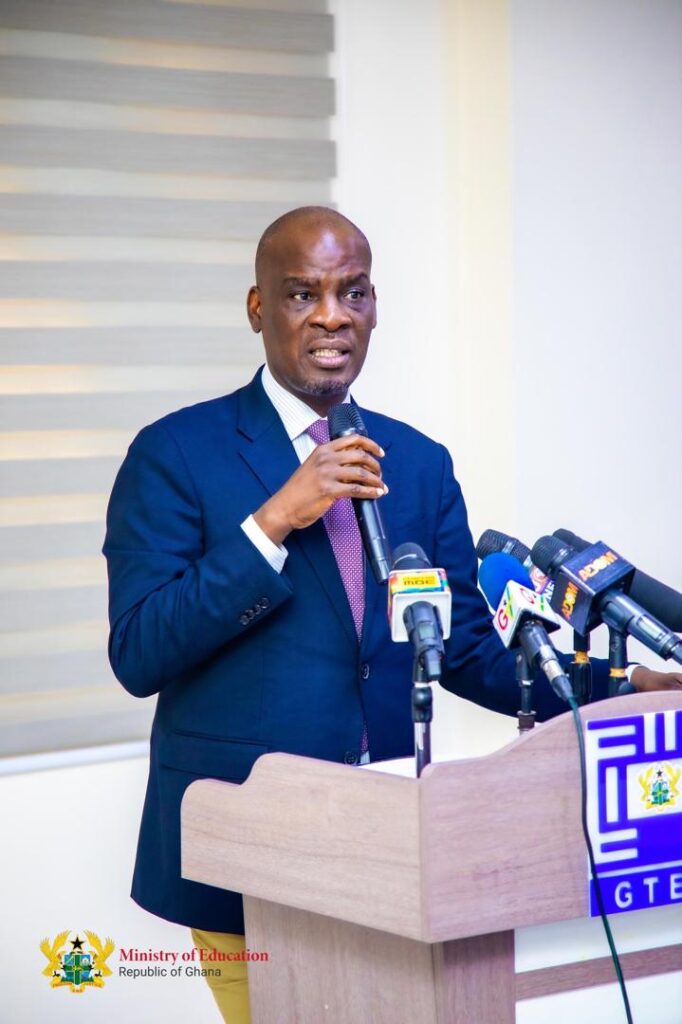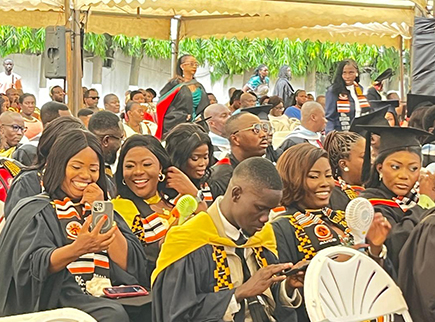Mr Haruna Iddrisu, the Minister of Education, has advised graduates of the African University of Communication and Business (AUCB) to embrace the future with courage and make meaningful contributions to the nation’s development.
He said in a technological world, Ghana needed graduates who could think critically, communicate effectively, innovate confidently, and lead ethically.

The Minister said this at the weekend in a speech read on his behalf at the 22nd congregation of AUCB for postgraduate, undergraduate and diploma students in Accra.
The University graduated a total of 451 students, of which 213 are from the Bachelor of Arts in Communication Studies, 87 from the BSc in Business Administration and 10 from the professional certificate in fine and creative arts programmes.
The ceremony was on the theme: “The Government Education Policy: Implications for Private Tertiary Institutions”.
The theme, he stated, invited all to reflect on how national education reforms reshape the responsibilities, strategic opportunities, and operational realities of private tertiary institutions.
He said government policy was not to overshadow private institutions but rather to empower them, promote quality, and recognise them as indispensable partners in building the government’s human capital.
“Private investors are not competitors to public investors. They are vital allies in national development.
“The future of education in Ghana will be shaped not by government alone, nor by investors alone, but by the synergy between the two,” he said.
The minister recognised that the government’s education policy over the last few years had shifted significantly towards the expansion of access, quality assurance, digitisation, skill development, research, and industry alignments.
“Your degree is not the end of your learning. It is the beginning of your leadership.
“Approach challenges with creativity, uphold integrity in all your dealings. Contribute to your communities and your nation,” he said.
Mr Iddrisu outlined four key pillars of government policy: quality assurance and standards, digitisation and technology integration, financing, partnership, sustainability and entrepreneurship support, and industry collaboration.
He said the government was committed to ensuring that tertiary graduates, regardless of the institution they attend, were equipped with properly competitive skills.
That, he stressed, had led to strengthening accreditation processes, curriculum reviews based on industry demand, enhanced monitoring and evaluation, and support for academic staff development.
Professor Abeku Blankson, Vice Chancellor, AUCB, said the University attained Presidential Charter on December 19, 2024.
The Charter granted the University a legal status and autonomy to confer its own degrees, diplomas, and certificates independently.
He said among the University’s three pillars of its strategic plan was the change of curriculum from theory-based to real-world and hands-on application of knowledge through practical models.
The Vice-Chancellor said the University had strengthened its academic partnerships with institutions of higher learning locally and abroad to broaden the frontiers of knowledge.
Ms Mensah Regina Antwiwaa, the valedictorian, commended the management of the University for the knowledge imparted to them, saying their achievements were hinged on collective efforts.
She said even though there were challenges, they were determined to persevere through resilience and integrity, pledging to turn challenges into opportunities and ideas into action.
Ms Regina Mensah Antwiwaa won the overall best graduating student for the undergraduate level.
Ms Henrrietta De Gaulle Firmin won the overall best postgraduate student.
Other students were also awarded for their exceptional performance.

